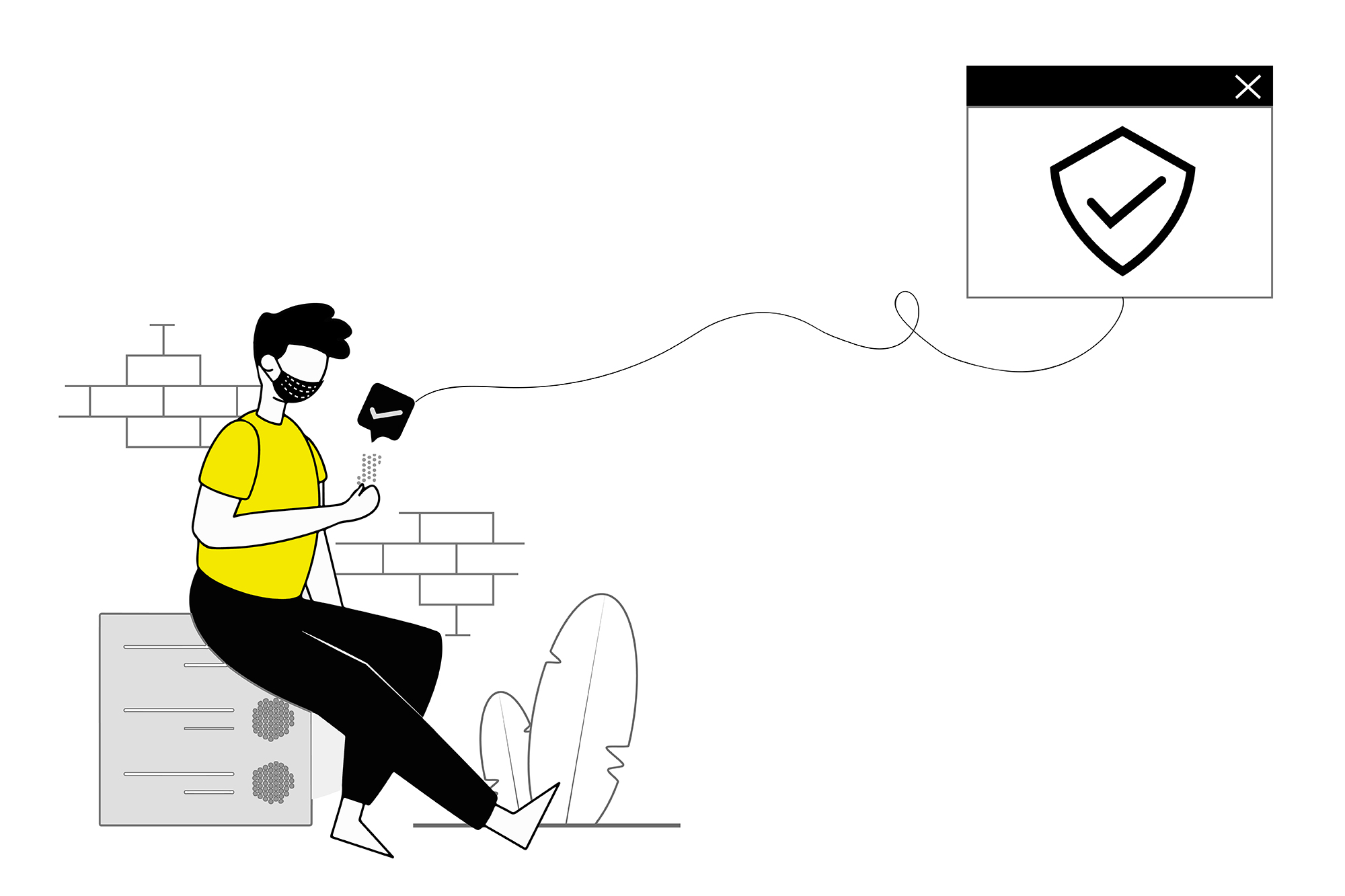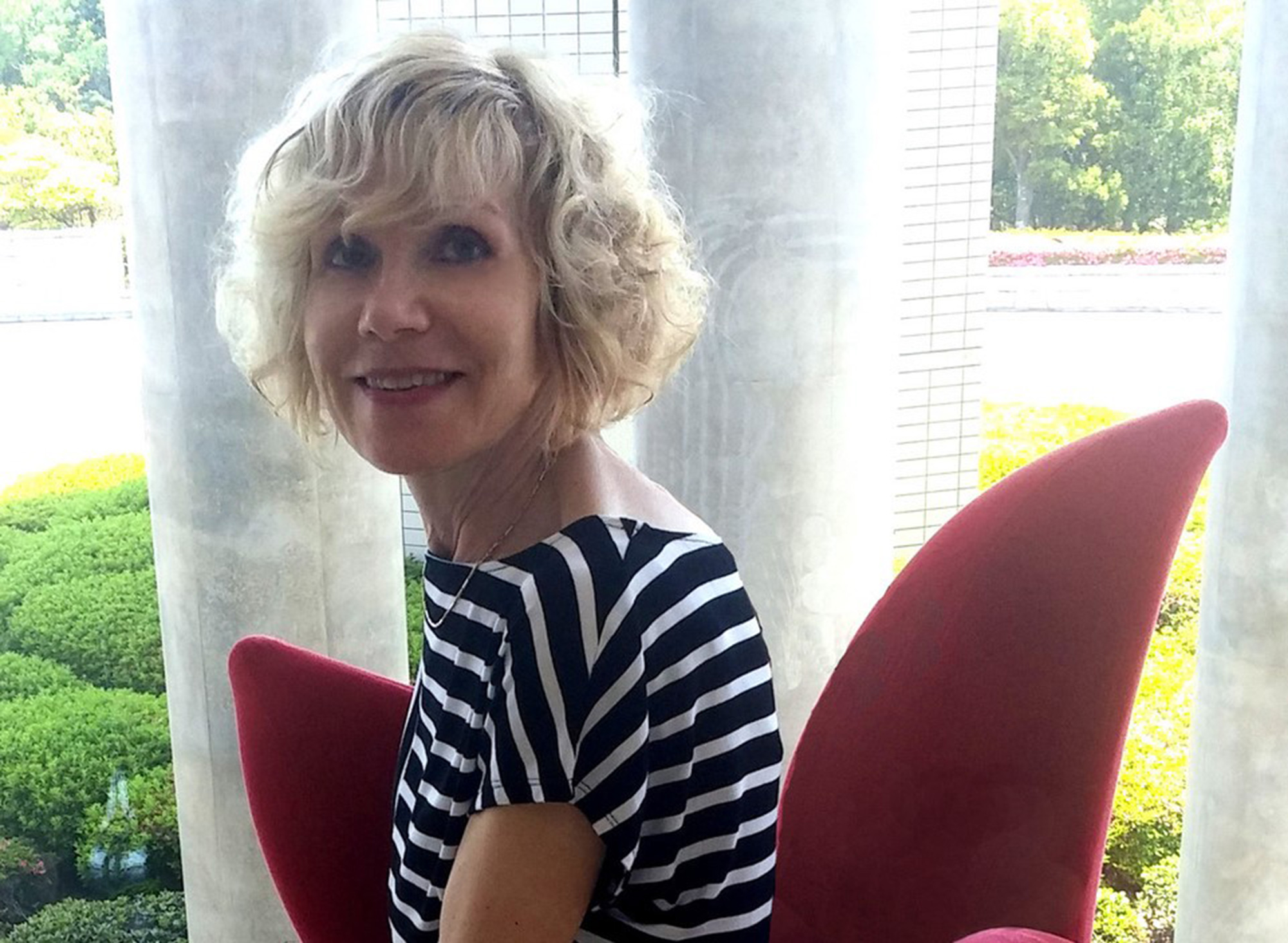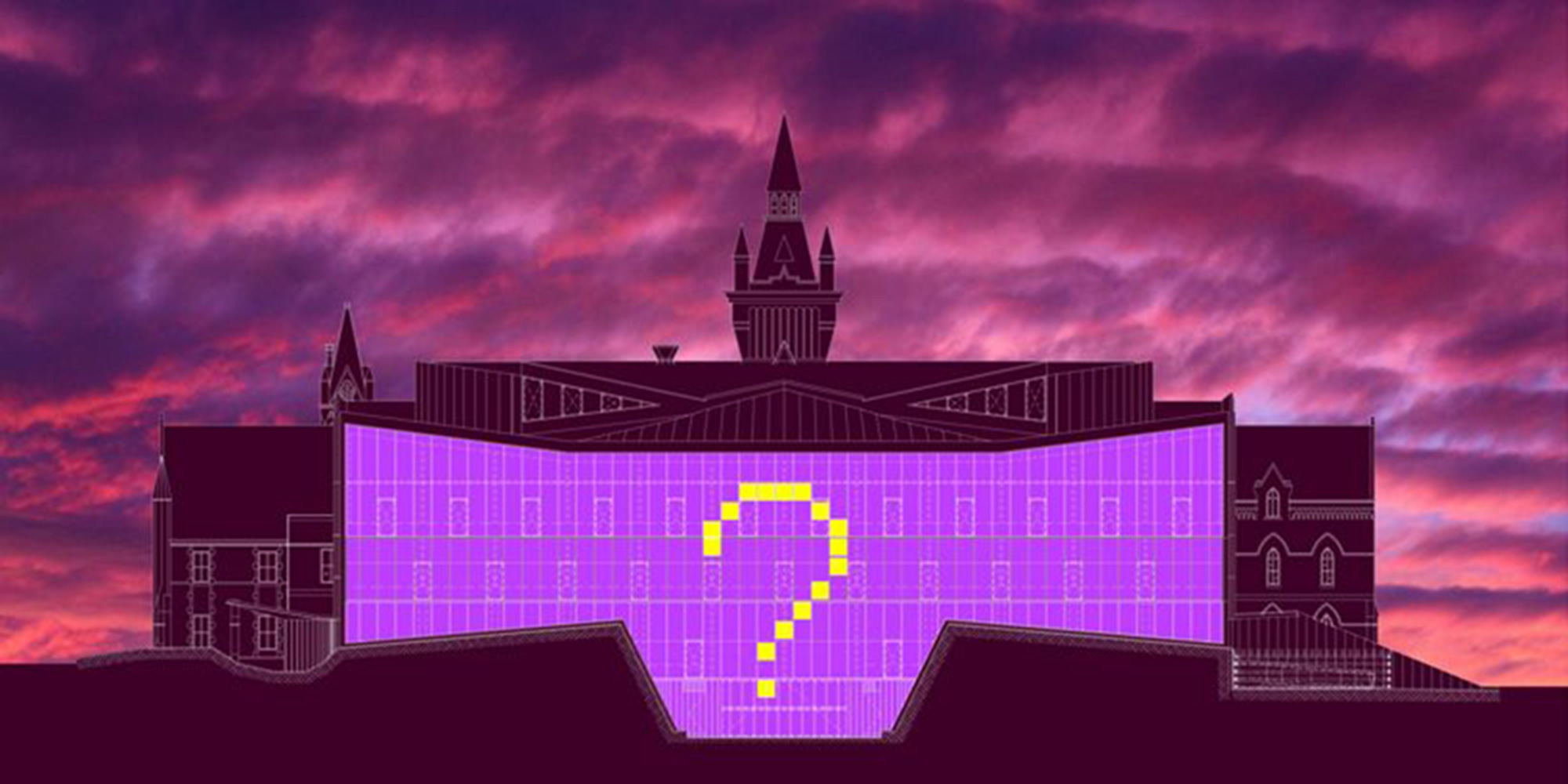29.10.20 - Meet Mariah Meawasige, designer of the graphics for the Daniels Faculty's fall lecture series
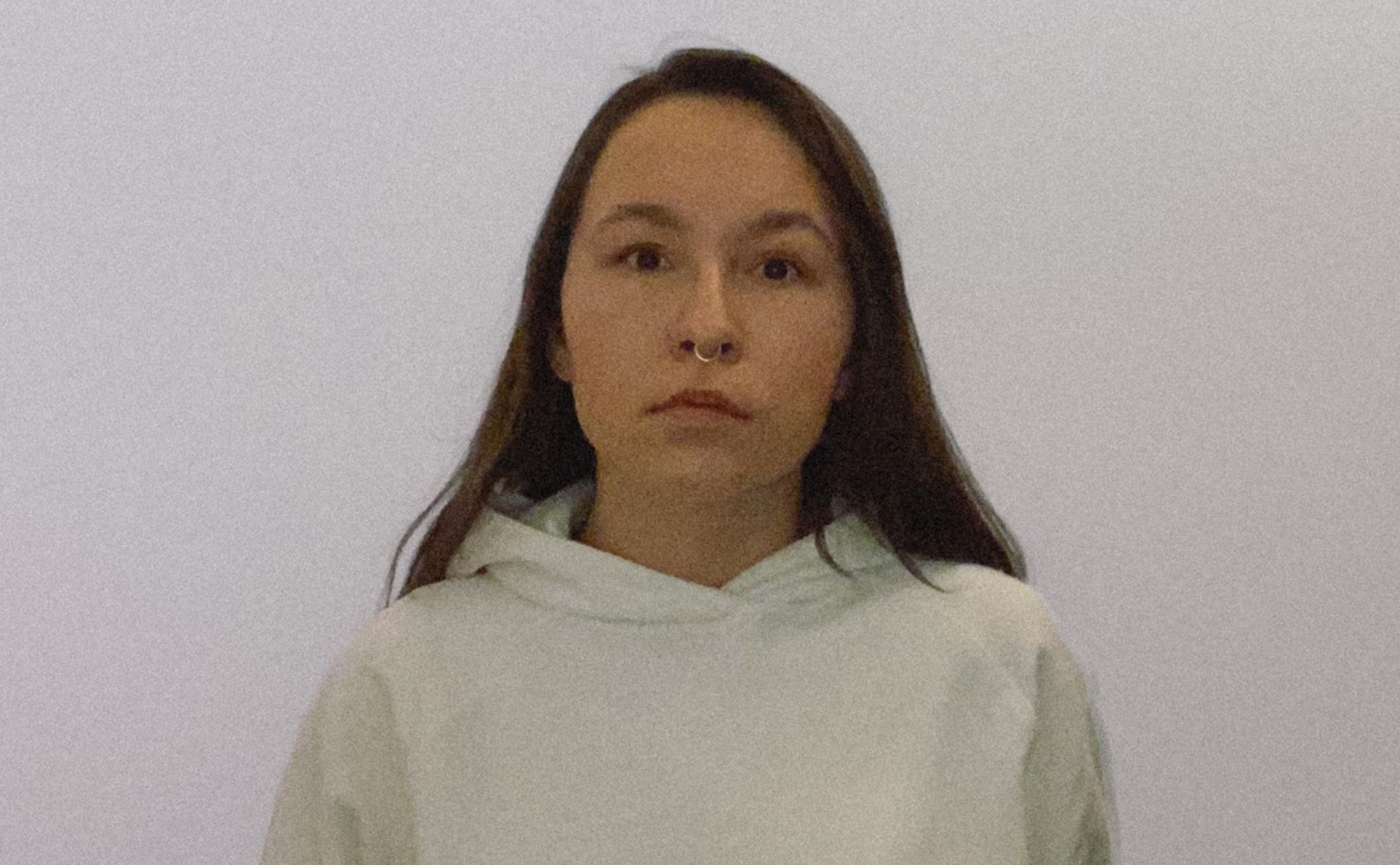
Photo courtesy of Mariah Meawasige.
If you've been paying attention to the Daniels Faculty's calendar of online events, you've probably noticed them: the purple-and-orange, grid-like illustrations at the tops of listings for events in the Faculty's fall lecture series. This colourful, geometric visual identity is the work of a local designer, Mariah Meawasige.
Meawasige is a 2019 graduate from the Ontario College of Art and Design University, where she majored in graphic design and minored in Indigenous visual culture. She has Anishinaabe heritage and is a member of the Serpent River First Nation. "I grew up between two communities: Serpent River and Elliot Lake, Ontario," she says. "That has informed my work a lot. My Indigenous community has been critical to me throughout my whole life."
Her professional design work has included a number of projects for Indigenous organizations. In 2019, she designed a logo for the Wapatah Centre for Indigenous Visual Knowledge, a Toronto-based organization that promotes conversation about Indigenous art and culture. "The logo takes inspiration from topography, star mapping, transmotion, and particularly the Kinomaage-Waapkong (teaching rocks) in Peterborough," Meawasige writes on her website.
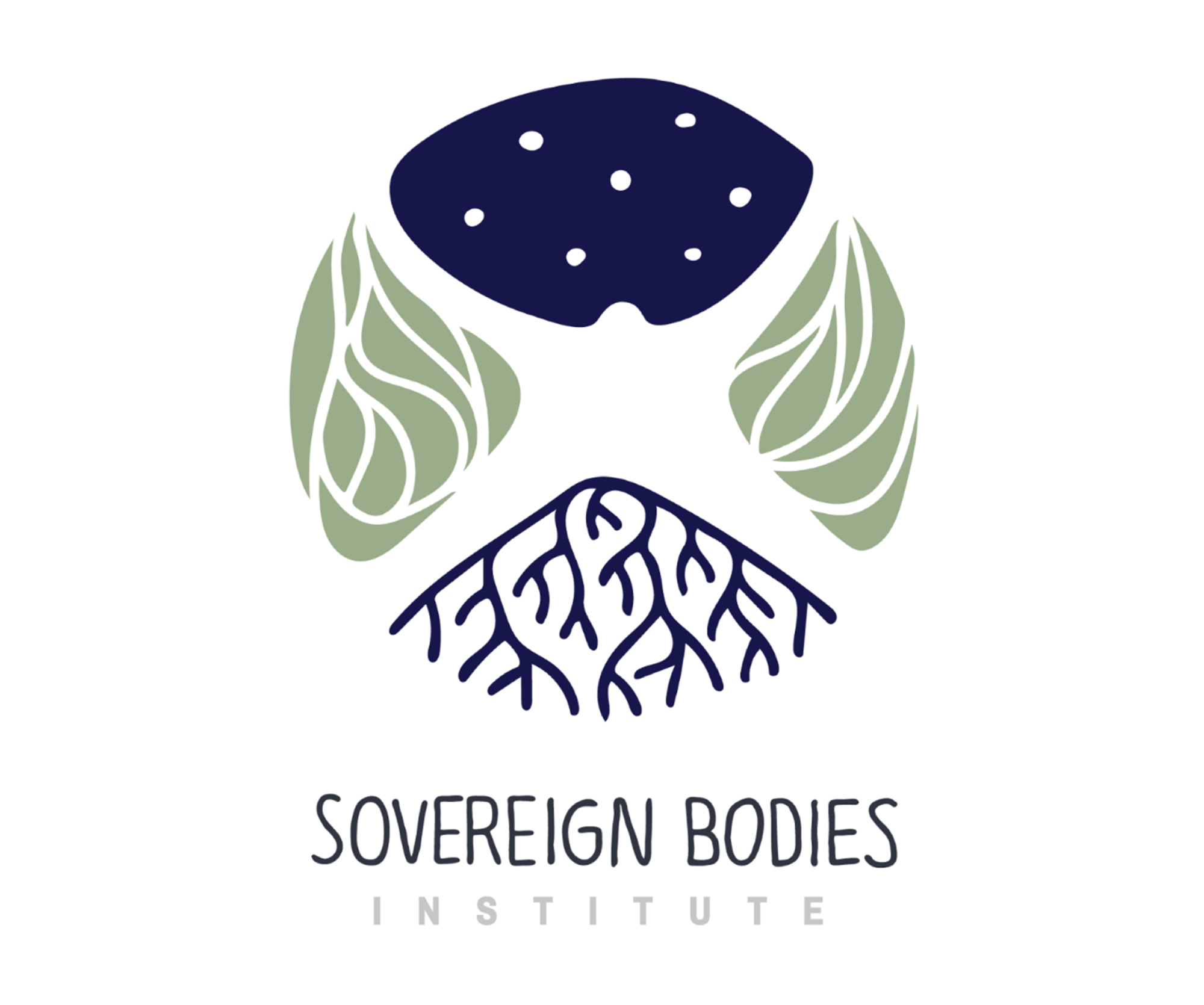
Meawasige's design for the Sovereign Bodies Institute logo.
Another logo design, for the Sovereign Bodies Institute, draws on themes of nationhood, bodies, and the self to visually represent the institute's research on sexual violence against Indigenous people. And Meawasige is currently at work on illustrations for a publication by Niizh Manidook, a group that teaches Indigenous youth how to tan animal hides.
Her designs for the Daniels Faculty's fall lecture series take inspiration from the COVID-19 pandemic's common denominator: the necessity of experiencing the world through a computer screen. "The design was meant to be a little tongue-in-cheek in the sense that it looks like a grid of pixels," Meawasige says. "I wanted it to encourage dialogue about the ways virtual learning has the potential to be so much more than just those squares. What does it mean to share space virtually? To share ideas virtually? How will our voices, symbolism, and body languages contort to fit into pixelated boxes?"
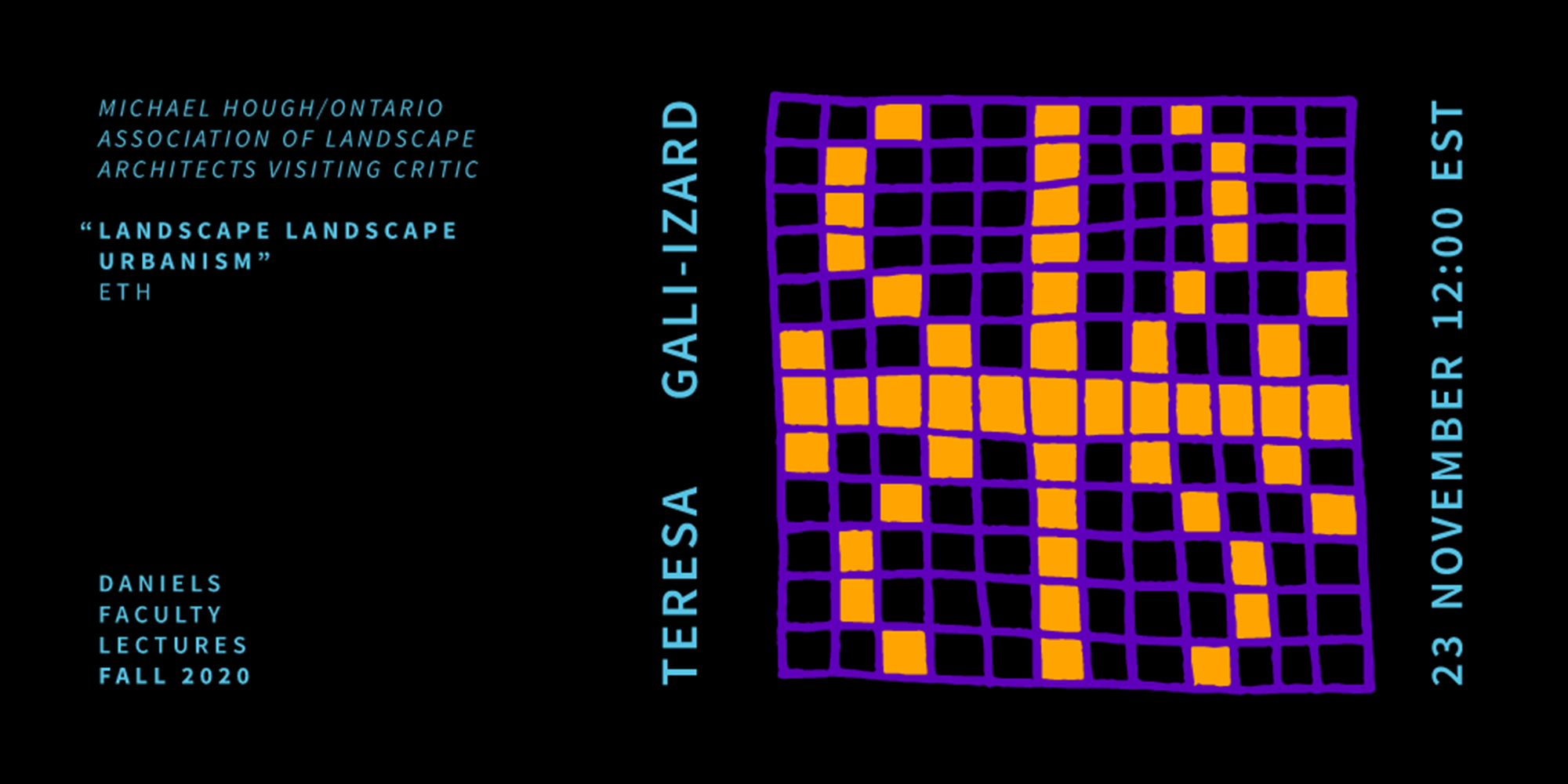
Meawasige's poster for Teresa Galí-Izard's lecture.
After settling on the pixel grid as a concept, Meawiasige researched each of the invited speakers. Then, using the results of that research, she designed a customized pixel grid for each speaker.
For instance, for Teresa Galí-Izard, a landscape architect with a background in agricultural engineering, Meawasige created pixel art that resembles a plant sprouting from the ground. "It's a mirrored image of a basic plant structure, to show how Galí-Izard pulls the worlds of environmental systems and architecture into her work," Meawasige says.
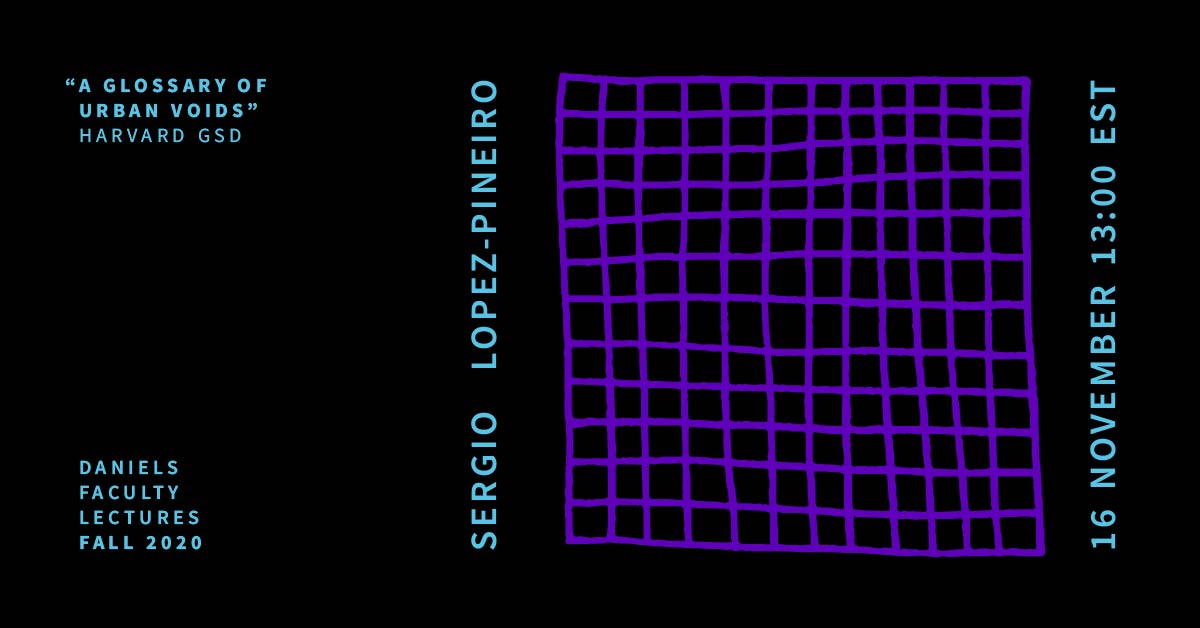
Meawiasige's poster for Sergio Lopez-Pineiro's lecture.
For Sergio Lopez-Pineiro, whose lecture is titled "A Glossary of Urban Voids," Meawiasige took a different tack. His grid is entirely empty — in other words, a void. "He had some really interesting commentary in his work on the idea of blank architecture," Meawiasige says. "And so we chose a design that's just blank. It's not all that interesting to look at, but at the same time, it is interesting. Because there's boundless potential."
Here are a few more examples of Meawiasige's work for the lecture series, each with its own unique pixel arrangement:
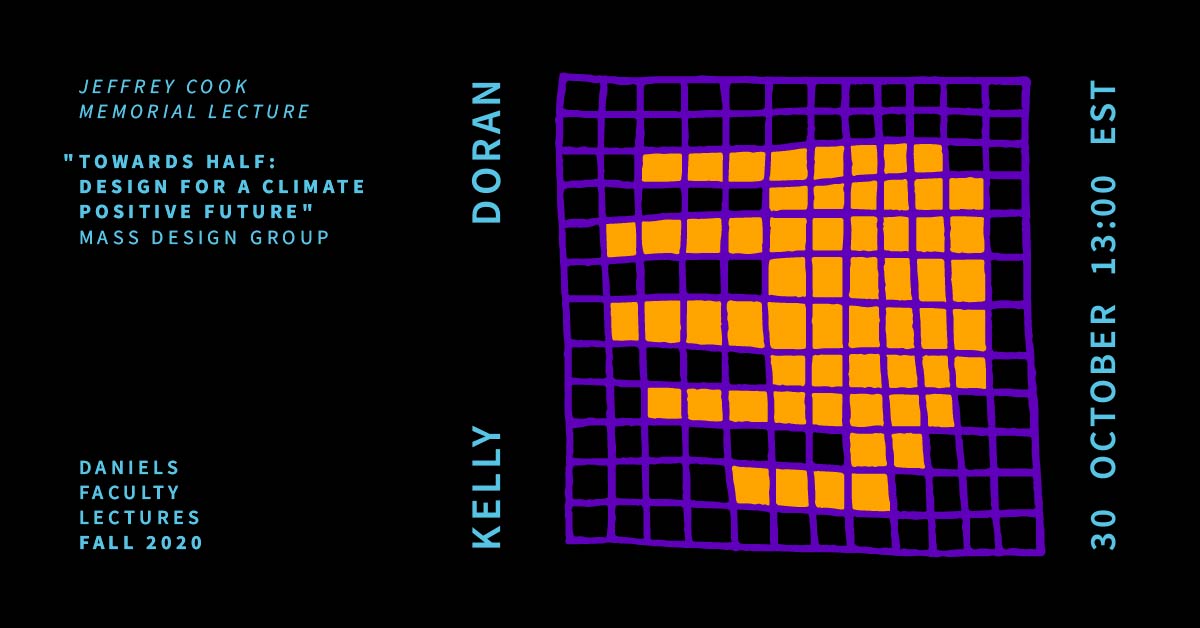
Meawiasige's poster for Kelly Doran's lecture.
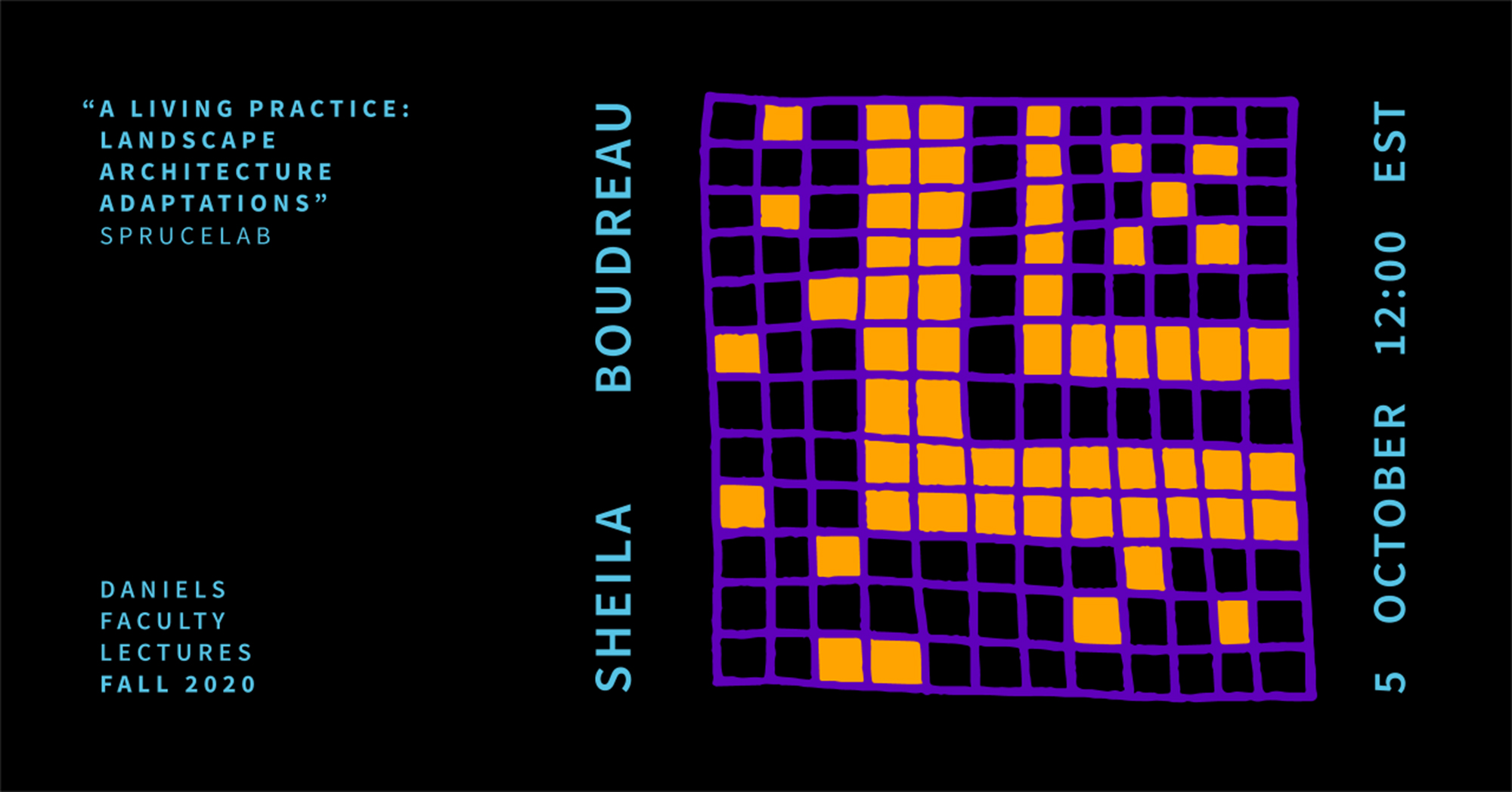
Meawiasige's poster for Sheila Boudreau's lecture.
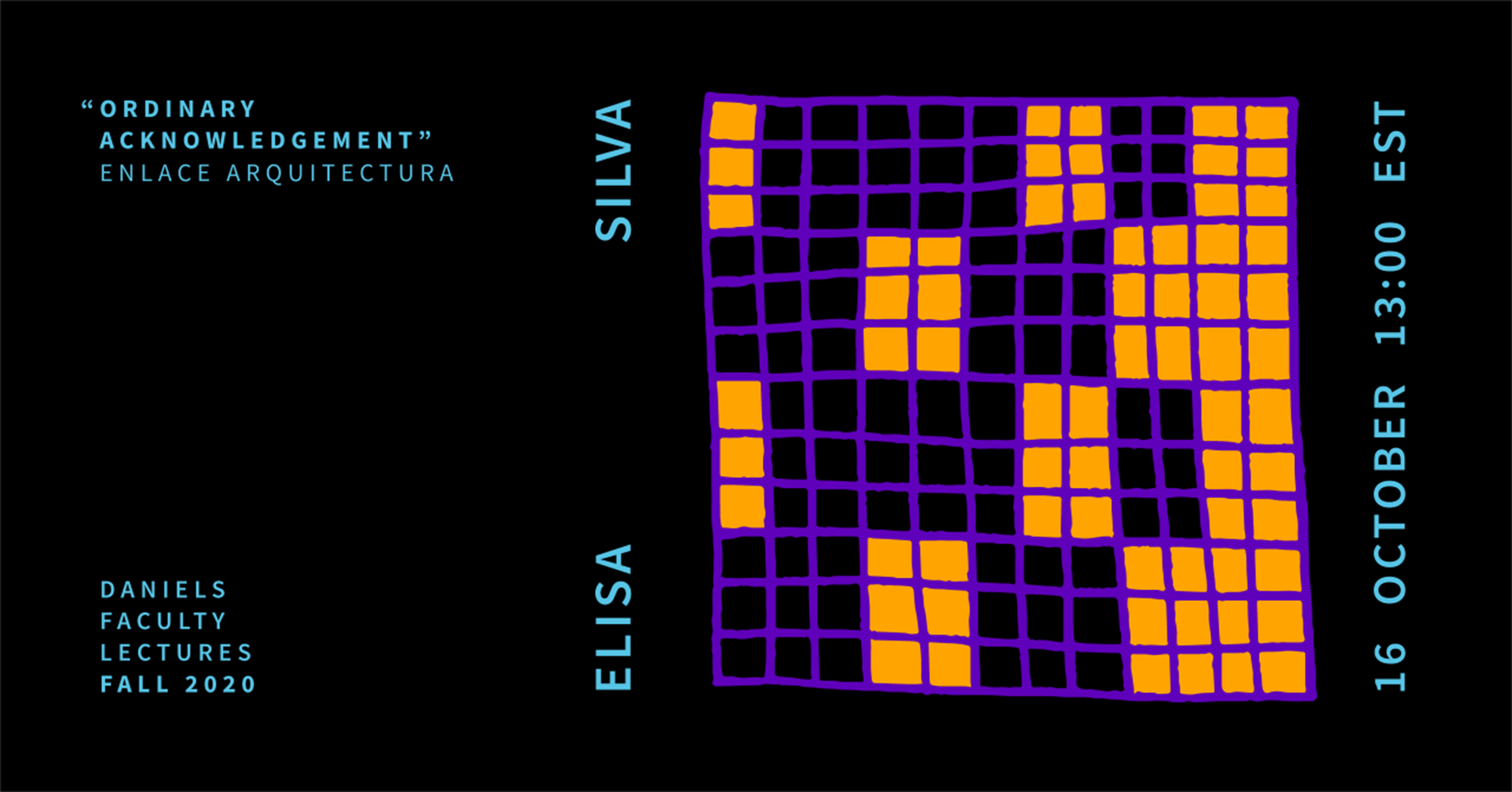
Meawiasige's poster for Elisa Silva's lecture.
Look for more of Meawiasige's work in the Daniels Faculty's fall event listings.


